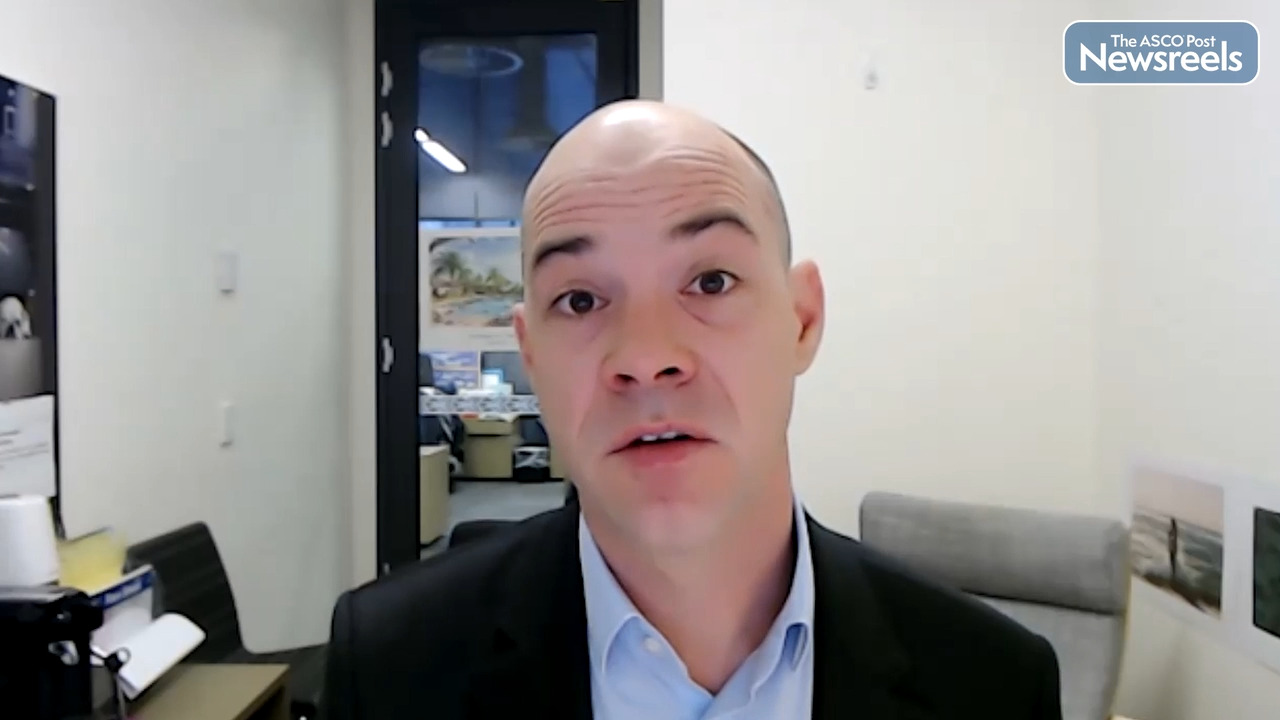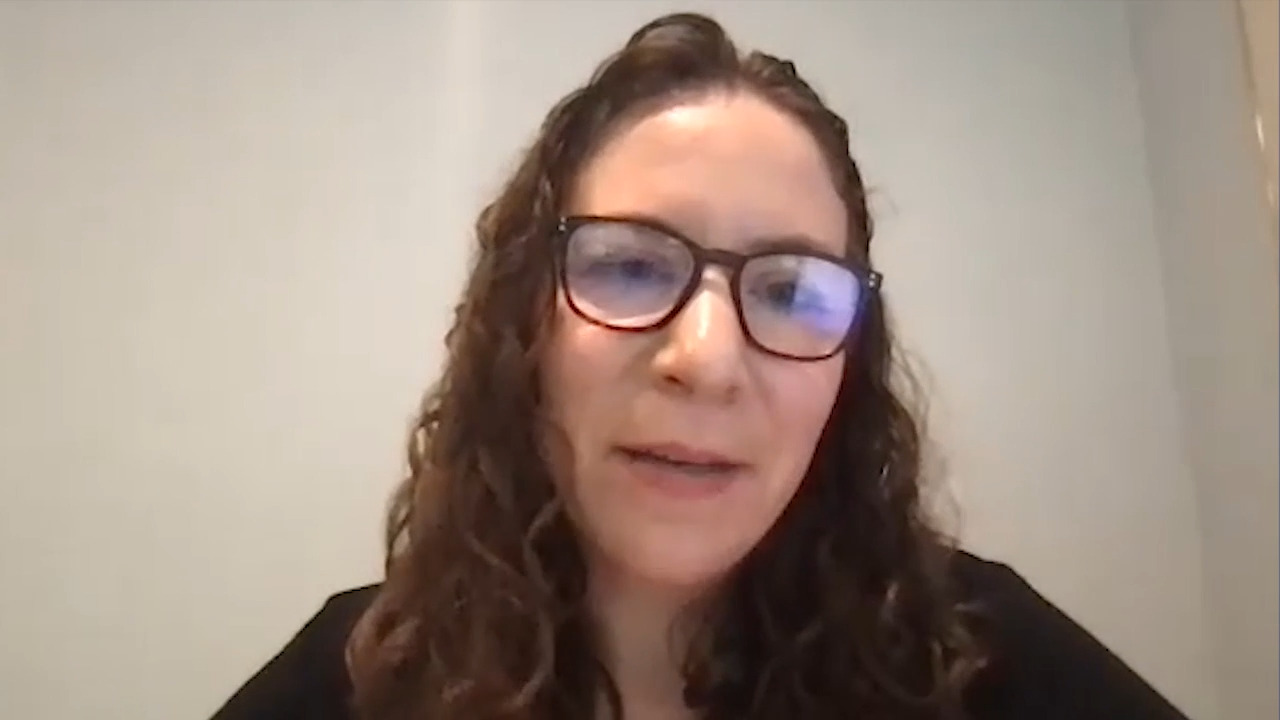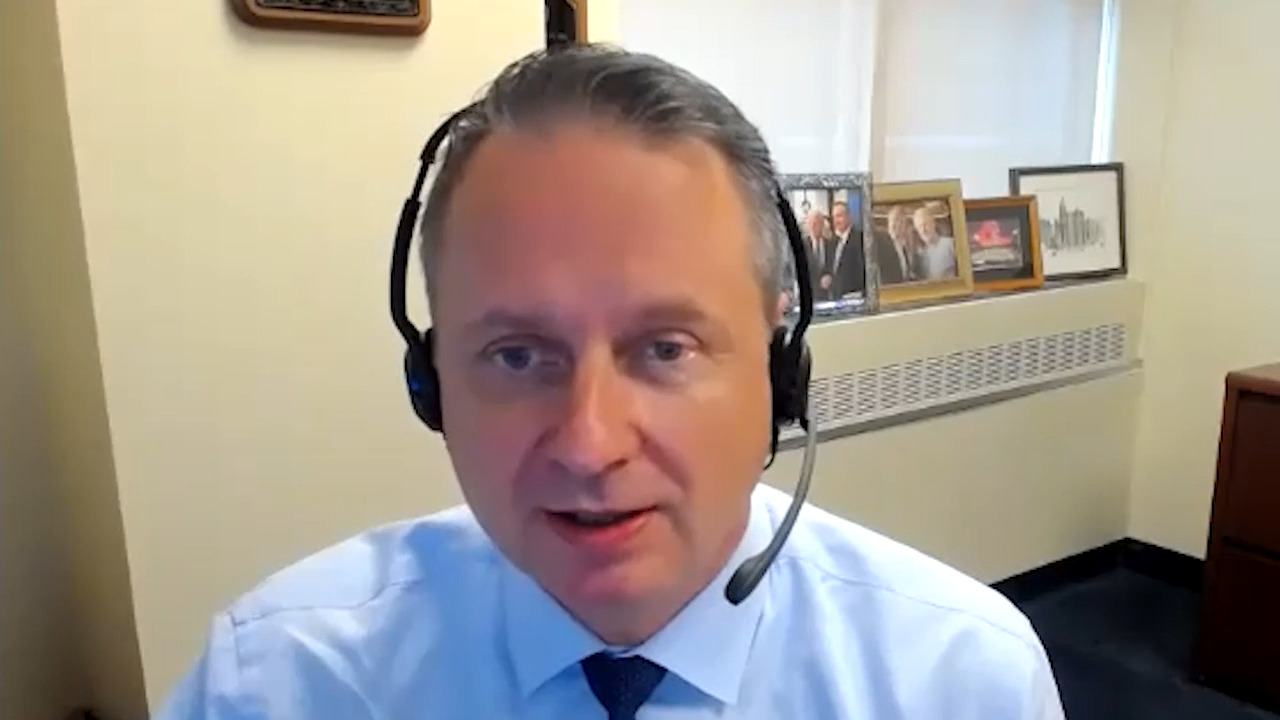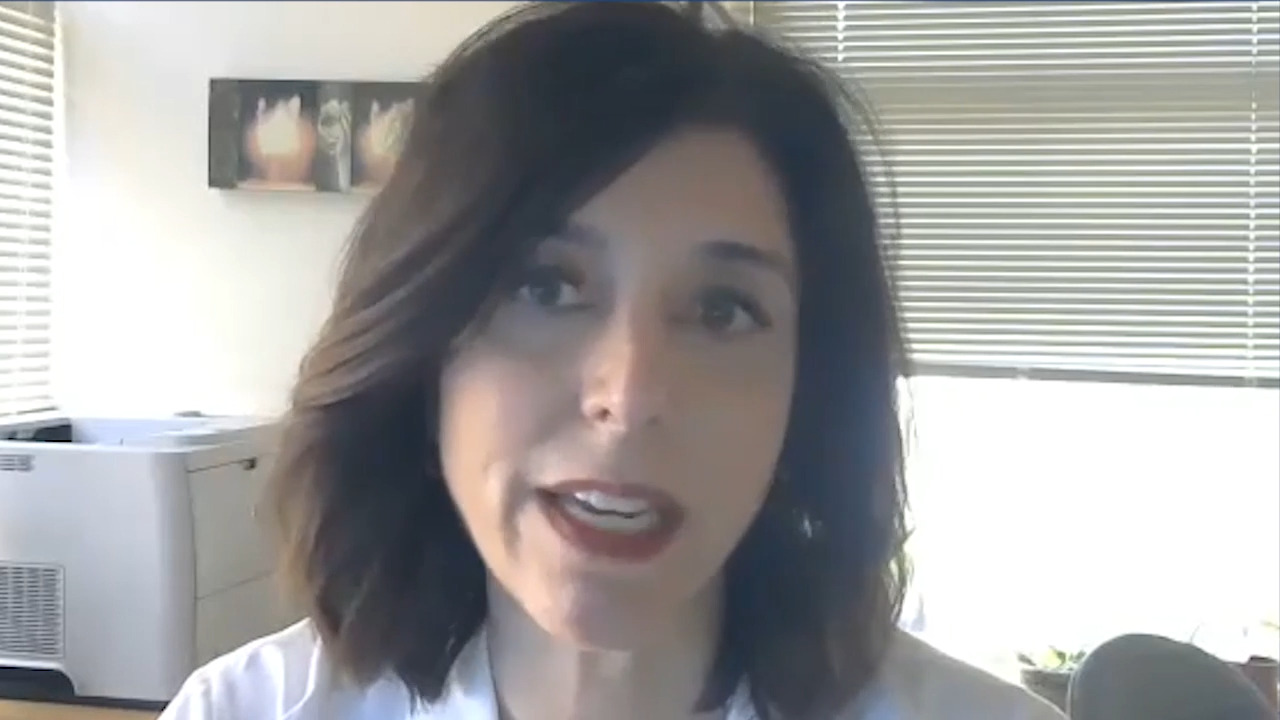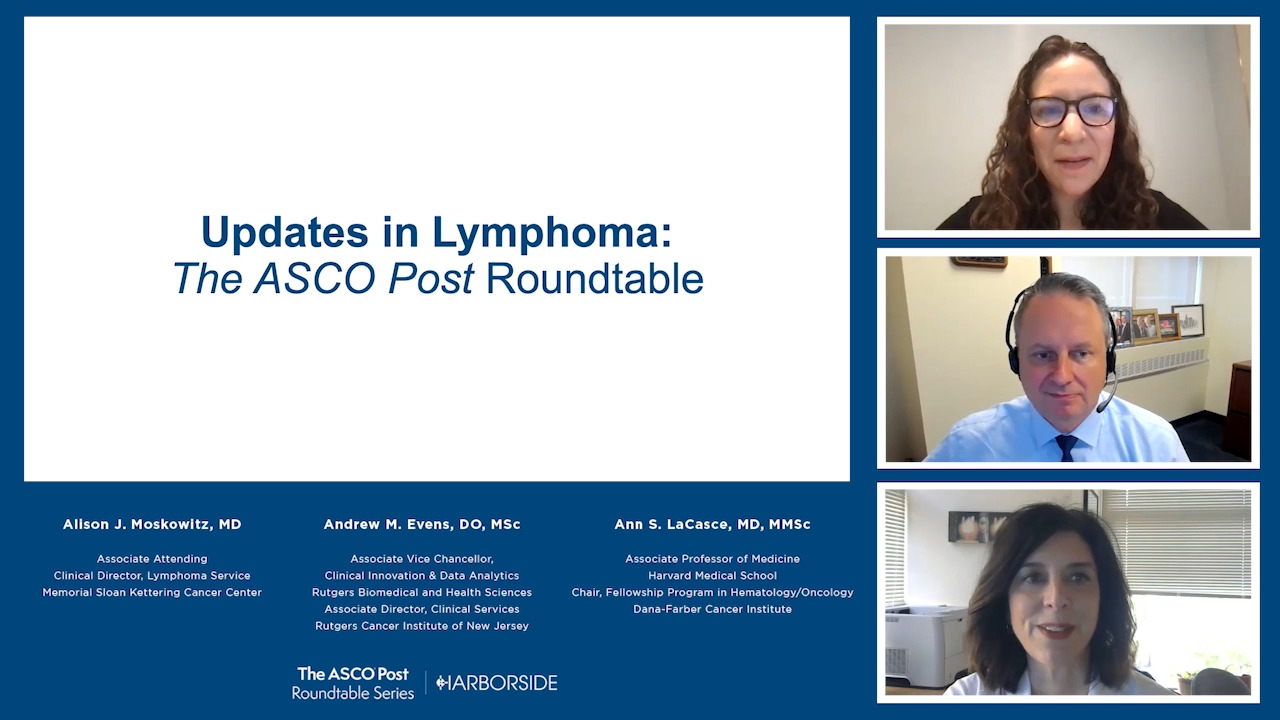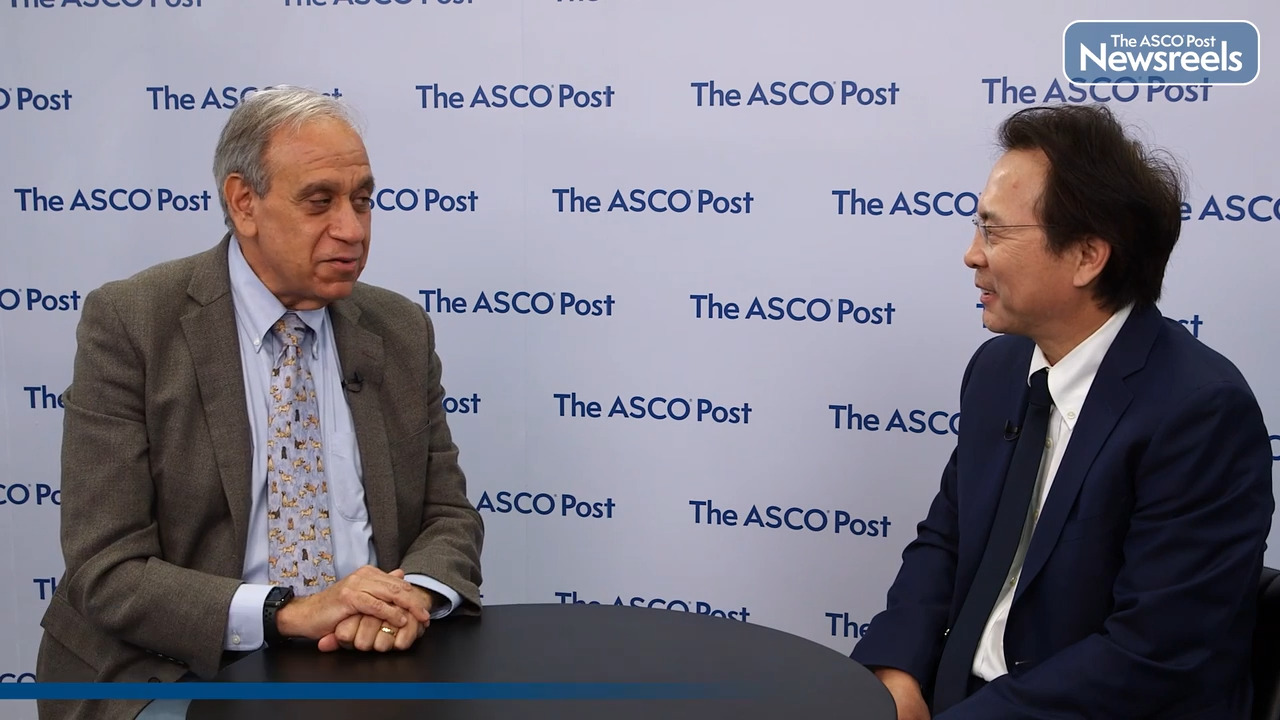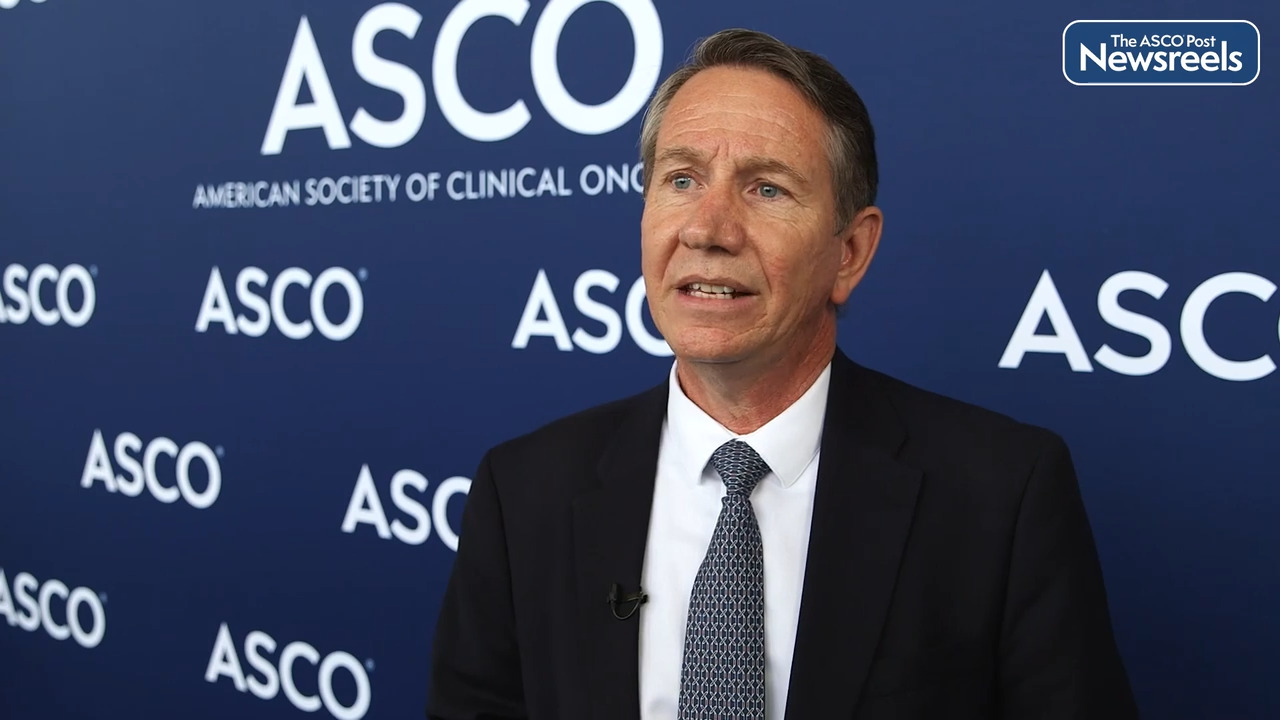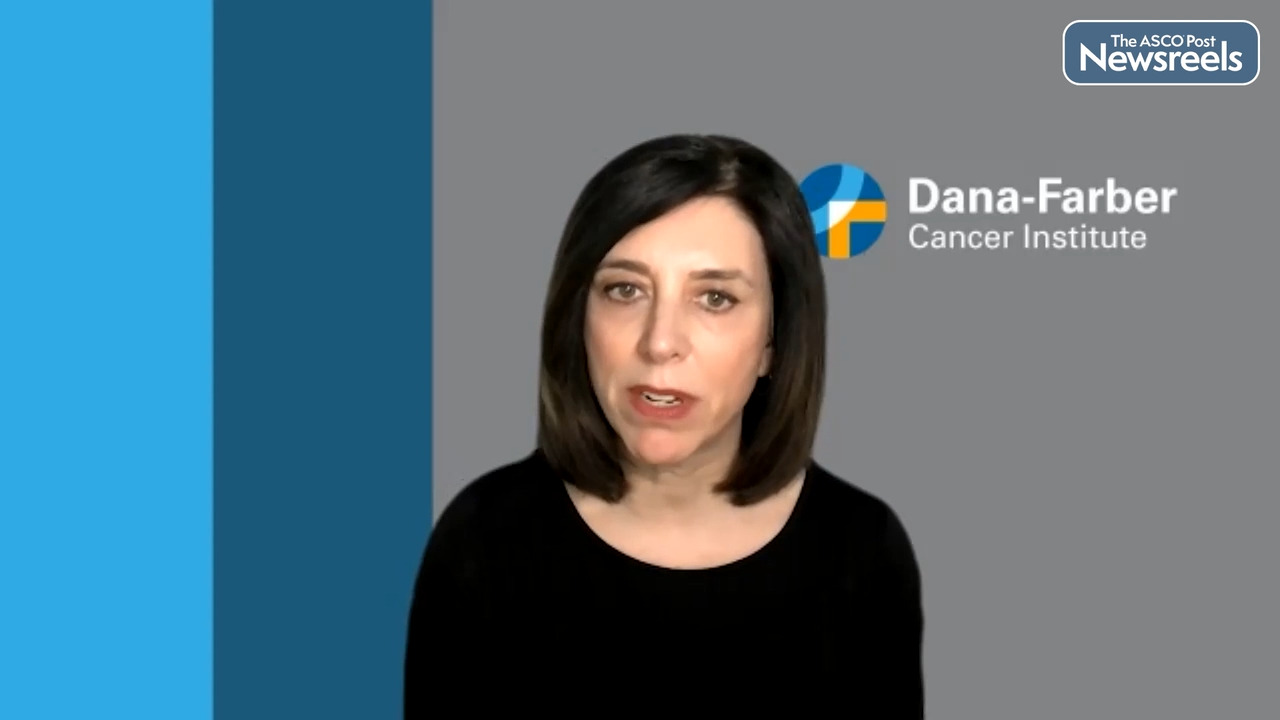Zanubrutinib vs Bendamustine/Rituximab in Previously Untreated Patients With CLL or SLL
As reported in The Lancet Oncology by Constantine S. Tam, MBBS, PhD, and colleagues, an interim analysis in the phase III SEQUOIA trial has shown significantly improved progression-free survival with first-line zanubrutinib vs bendamustine/rituximab in patients with chronic lymphocytic leukemia...
Second-Line Lisocabtagene Maraleucel in Patients With Relapsed or Refractory Large B-Cell Lymphoma Not Intended for HSCT
As reported in The Lancet Oncology by Sehgal et al, the phase II PILOT trial showed that the autologous, CD19-directed chimeric antigen receptor (CAR) T-cell product lisocabtagene maraleucel produced a high response rate in the second-line treatment of patients with relapsed or refractory large...
Addition of Brentuximab Vedotin to Chemotherapy in Patients With Stage III or IV Hodgkin Lymphoma: Overall Survival Analysis From ECHELON-1
As reported in The New England Journal of Medicine by Stephen M. Ansell, MD, PhD, and colleagues, an analysis at 6 years of follow-up in the phase III ECHELON-1 trial has shown significantly improved overall survival with brentuximab vedotin plus doxorubicin, vinblastine, and dacarbazine (A+AVD) vs ...
Do Bone Marrow Biopsies Aid in Response Assessment for Patients With Follicular Lymphoma?
In a pooled analysis of patients with follicular lymphoma treated in National Clinical Trials Network trials reported in the Journal of Clinical Oncology, Rutherford et al found evidence that bone marrow biopsies can be avoided in response assessment. The investigators stated, “Bone marrow biopsies ...
Michael Dickinson, MBBS, on DLBCL: Phase II Expansion Results on Glofitamab
Michael Dickinson, MBBS, of the Peter MacCallum Cancer Centre, the Royal Melbourne Hospital, and The University of Melbourne, discusses new data, which showed that fixed-duration glofitamab induces durable complete remissions with a favorable safety profile in patients with or refractory diffuse large B-cell lymphoma and two or more prior therapies, including exposure to CAR T cells (Abstract 7500).
Bispecific Antibody Mosunetuzumab in Relapsed or Refractory Follicular Lymphoma
In a phase II study reported in The Lancet Oncology, L. Elizabeth Budde, MD, PhD, and colleagues found that mosunetuzumab—a CD20 × CD3 T-cell–engaging bispecific antibody that redirects T cells to eliminate malignant B cells—produced a high rate of complete response in patients with relapsed or...
Real-World Treatment Outcomes With Transplantation and Maintenance Rituximab in Previously Untreated Patients With Mantle Cell Lymphoma
In a U.S. “real-world” retrospective cohort study of patients receiving first-line treatment for mantle cell lymphoma reported in the Journal of Clinical Oncology, Peter Martin, MD, and colleagues found that autologous stem cell transplantation (ASCT) did not significantly improve the time to next...
Lisocabtagene Maraleucel as Second-Line Treatment for Relapsed or Refractory Large B-Cell Lymphoma: TRANSFORM Trial
As reported in The Lancet by Manali Kamdar, MD, and colleagues, an interim analysis of the phase III TRANSFORM trial has shown significantly improved event-free survival with second-line lisocabtagene maraleucel vs standard-of-care salvage immunochemotherapy followed by autologous hematopoietic...
FDA Warns About Possible Increased Risk of Death and Serious Side Effects With Duvelisib
The U.S. Food and Drug Administration (FDA) is warning that results from the phase III DUO clinical trial show a possible increased risk of death with duvelisib compared to ofatumumab among patients with chronic lymphocytic leukemia (CLL) or small lymphocytic lymphoma (SLL). The trial also found...
Direct-Acting Antivirals in HCV-Associated Indolent Non-Hodgkin Lymphomas
As reported in the Journal of Clinical Oncology by Merli et al, the Fondazione Italiana Linfomi phase II BArT study has shown that primary treatment of hepatitis C virus (HCV)-associated indolent non-Hodgkin lymphomas with direct-acting antivirals resulted in sustained virologic response in all...
FDA Approves Lisocabtagene Maraleucel for the Second-Line Treatment of Large B-Cell Lymphoma
On June 24, the U.S. Food and Drug Administration (FDA) approved the chimeric antigen receptor (CAR) T-cell therapy lisocabtagene maraleucel (Breyanzi) for adult patients with large B-cell lymphoma (LBCL) who have disease refractory to first-line chemoimmunotherapy or relapse within 12 months of...
Relapsed/Refractory Hodgkin Lymphoma
This is Part 4 of Updates in Lymphoma, a four-part video roundtable series. Scroll down to watch the other videos from this Roundtable. In this video, Drs. Alison J. Moskowitz, Andrew M. Evens, and Ann S. LaCasce discuss the management of relapsed/refractory Hodgkin lymphoma. The patient is a 36-year-old woman who was originally diagnosed with stage IIIB classical Hodgkin lymphoma with a 12-cm mediastinal mass and an IPS of 2. She received BV-AVD for 6 cycles, with a PET-negative response after two and six cycles of treatment. However, repeat PET scan showed new and increasing hypermetabolic masses in the anterior mediastinum. The faculty discuss treatment options for patients with primary refractory disease, including brentuximab vedotin plus nivolumab and pembrolizumab plus gemcitabine, vinorelbine, and doxorubicin.
Hodgkin Lymphoma in Patients Age ≥ 60 Years
This is Part 3 of Updates in Lymphoma, a four-part video roundtable series. Scroll down to watch the other videos from this Roundtable. In this video, Drs. Alison J. Moskowitz, Andrew M. Evens, and Ann S. LaCasce discuss Hodgkin lymphoma in patients age ≥ 60 years. The patient is a 65-year-old man who is diagnosed with stage IV Hodgkin lymphoma, IPS of 4, with FDG uptake in lymph nodes and the bones. The faculty discuss the treatment options older patients, the importance of geriatric assessment, and when front-line palliative therapy with brentuximab vedotin may be appropriate.
Bulky Early-Stage Hodgkin Lymphoma
This is Part 2 of Updates in Lymphoma, a four-part video roundtable series. Scroll down to watch the other videos from this Roundtable. In this video, Drs. Alison J. Moskowitz, Andrew M. Evens, and Ann S. LaCasce discuss the management of bulky early-stage Hodgkin lymphoma. The patient is a 23-year-old woman who is diagnosed with classical Hodgkin lymphoma and bilateral cervical and mediastinal lymphadenopathy (measuring > 13 cm) with pleural effusion. The faculty discuss the results of the Alliance 50801 study of PET-adapted therapy in bulky Hodgkin lymphoma and situations where radiotherapy can be omitted in patients with bulky disease.
Advanced-Stage Hodgkin Lymphoma
This is Part 1 of Updates in Lymphoma, a four-part video roundtable series. Scroll down to watch the other videos from this Roundtable. In this video, Drs. Alison J. Moskowitz, Andrew M. Evens, and Ann S. LaCasce discuss the management of advanced-stage Hodgkin lymphoma. The patient is a 35-year-old woman who presents with cough and is diagnosed with stage IV Hodgkin lymphoma with metastases in her lung and liver and IPS of 3. The faculty discuss the implications of the ECHELON-1 trial of brentuximab vedotin plus doxorubicin, vinblastine, and dacarbazine vs doxorubicin, bleomycin, vinblastine, and dacarbazine, as well as the role of PET-directed therapy in the treatment of these patients. Editor’s Note: This video was filmed prior to the presentation of the ECHELON-1 data at the 2022 ASCO Annual Meeting.
Andrew D. Zelenetz, MD, PhD, and Michael L. Wang, MD, on Mantle Cell Lymphoma: New Data on Ibrutinib in Combination With Bendamustine/Rituximab and Rituximab Maintenance
Andrew D. Zelenetz, MD, PhD, of Memorial Sloan Kettering Cancer Center, and Michael L. Wang, MD, of The University of Texas MD Anderson Cancer Center, discuss primary results from the phase III SHINE study, which showed that ibrutinib, in combination with bendamustine/rituximab and rituximab maintenance, may set a new benchmark for patients aged 65 or older with mantle cell lymphoma. With a median progression-free survival of 6.7 years, the ibrutinib combination is more beneficial than currently used chemoimmunotherapy (approximately 1.5–3.5 years) (Abstract LBA7502).
Allogeneic CAR T-Cell Therapy for Relapsed or Refractory T-Cell Lymphoma
Patients with relapsed or refractory T-cell lymphoma have limited treatment options. Chimeric antigen receptor (CAR) T-cell therapy has been challenging in these patients because of the state of their T cells. CTX130 is an allogeneic CAR T-cell therapy targeting CD70 on cancerous T cells, offering...
Brexucabtagene Autoleucel in Relapsed or Refractory Mantle Cell Lymphoma: 3-Year Follow-up of ZUMA-2 Trial
In an analysis presented at the 2022 ASCO Annual Meeting (Abstract 7518) and simultaneously reported in the Journal of Clinical Oncology, Michael Wang, MD, and colleagues provided data from the 3-year follow-up of the pivotal ZUMA-2 trial of the chimeric antigen receptor (CAR) T-cell therapy...
Stephen M. Ansell, PhD, MD, on Hodgkin Lymphoma: An Updated Analysis on First-Line Brentuximab Vedotin Plus Chemotherapy
Stephen M. Ansell, PhD, MD, of Mayo Clinic, discusses updated data from the ECHELON-1 trial, which showed that, when administered to patients with stage III or IV classical Hodgkin lymphoma, the combination of brentuximab vedotin, doxorubicin, vinblastine, and dacarbazine (A+AVD) vs doxorubicin, bleomycin, vinblastine, and dacarbazine resulted in a 41% reduction in the risk of death. These outcomes, says Dr. Ansell, confirm A+AVD as a preferred option for previously untreated disease (Abstract 7503).
Ibrutinib Added to Standard Therapy Prolongs Progression-Free Survival in Older Patients With Mantle Cell Lymphoma
Primary results from the phase III SHINE trial demonstrated that first-line treatment with ibrutinib combined with bendamustine/rituximab and rituximab maintenance achieves a substantial prolongation of progression-free survival in elderly patients with mantle cell lymphoma, according to a...
FDA Approves Tisagenlecleucel for Adult Patients With Relapsed or Refractory Follicular Lymphoma
On May 28, the U.S. Food and Drug Administration (FDA) granted accelerated approval to the chimeric antigen receptor (CAR) T-cell therapy tisagenlecleucel (Kymriah) for the treatment of adult patients with relapsed or refractory follicular lymphoma after two or more lines of systemic therapy....
Finding a New Normal After Classical Hodgkin Lymphoma
As every patient diagnosed with cancer knows, the disease affects not just your physical well-being, but your emotional well-being, too. I was just 35 years old when I was diagnosed with early-stage classical Hodgkin lymphoma this past summer, and the news came at a time when I was feeling in top...
Axicabtagene Ciloleucel for Second-Line Treatment of Large B-Cell Lymphoma
On April 1, 2022, axicabtagene ciloleucel was approved for adults with large B-cell lymphoma that is refractory to first-line chemoimmunotherapy or relapses within 12 months of first-line chemoimmunotherapy.1 It is not indicated for the treatment of patients with primary central nervous system...
NCCN Clinical Practice Guidelines in Oncology: 2022 Updates
In 1996, the National Comprehensive Cancer Network® (NCCN®) published its first set of Clinical Practice Guidelines in Oncology® covering eight tumor types. Guidelines are now published for more than 60 tumor types, subtypes, and topics. During the NCCN’s 27th Annual Conference, which was again...
Report Investigates Potential Causes of Decreasing Responses to CAR T-Cell Therapy in Patients With Non-Hodgkin Lymphoma
A study published by Jackson et al in Cancer Discovery investigated the reasons for decreased remission rates for patients with non-Hodgkin lymphoma treated with chimeric antigen receptor (CAR) T-cell therapy. "CAR T-cell therapy is a promising treatment for non-Hodgkin lymphoma, especially for...
Prevalence of Plasma Cell and Lymphoproliferative Disorders in Relatives of Probands With Light Chain Amyloidosis
In a study reported in the British Journal of Haematology, Staron et al found that the prevalence of plasma cell and lymphoproliferative disorders among blood relatives of probands with light chain (AL) amyloidosis was low overall and varied according to proband AL amyloidosis subtype. Despite...
Rehospitalization and Emergency Department Visits After CAR T-Cell Therapy in Commercially Insured Patients With Cancer
In a single-institution study reported in a research letter in JAMA Oncology, Kenzik et al found substantial rates of rehospitalization and emergency department visits after chimeric antigen receptor (CAR) T-cell therapy among commercially insured patients with cancer. Study Details The study...
The WHO Classification of Tumors of Hematopoietic and Lymphoid Tissues
The ASCO Post is pleased to present Hematology Expert Review, an ongoing feature that quizzes readers on issues in hematology. In this installment, Drs. Syed Ali Abutalib and L. Jeffrey Medeiros explore the updated World Health Organization (WHO) classification of hematopoietic and lymphoid tissue...
Natural Killer Cells Precomplexed With Innate Cell Engager Show Activity in CD30-Positive Lymphoma
Natural killer (NK) cells derived from donated umbilical cord blood, activated with a novel bispecific antibody targeting CD16A and CD30 known as AFM13, have yielded responses in patients with pretreated and refractory CD30-positive lymphoma. The overall response rate was 89%, with 53% complete...
Hematologic Oncology 2021–2022 Almanac
Ongoing evaluation of novel, targeted, and immunotherapies has led to exciting advances across the array of hematologic malignancies over the past year. The availability of new treatment options, along with emerging data on novel combinations and sequencing approaches, is rapidly changing...
BELINDA Trial: CAR T-Cell Therapy Fails to Improve Outcomes in Aggressive Non-Hodgkin Lymphoma
The autologous chimeric antigen receptor (CAR) T-cell therapy tisagenlecleucel failed to improve event-free survival vs standard-of-care treatment strategies in patients with aggressive, relapsed or refractory non-Hodgkin lymphoma (NHL), according to results of the phase III BELINDA trial,...
Expert Point of View: Laurie H. Sehn, MD, MPH
The moderator of the session, Laurie H. Sehn, MD, MPH, Clinical Professor at the BC Cancer Centre for Lymphoid Cancer and University of British Columbia, Vancouver, Canada, called the results of the TRANSFORM trial “quite remarkable” and said chimeric antigen receptor (CAR) T-cell therapy has the...
TRANSFORM: Lisocabtagene Maraleucel Improves Outcomes in Relapsed or Refractory Large B-Cell Lymphoma
Chimeric antigen receptor (CAR) T-cell therapy with lisocabtagene maraleucel could prove to be the new standard-of-care treatment for patients with relapsed or refractory large B-cell lymphoma in the second-line setting, according to data presented at the 2021 American Society of Hematology (ASH)...
Mosunetuzumab Meets Primary Endpoint of Phase II Trial in Relapsed or Refractory Follicular Lymphoma
The bispecific antibody mosunetuzumab achieved deep and durable remissions as monotherapy in patients with relapsed or refractory follicular lymphoma, according to the results of a pivotal phase II trial presented at the 2021 American Society of Hematology (ASH) Annual Meeting & Exposition.1 In ...
POLARIX: Addition of Polatuzumab Vedotin-piiq to Standard of Care Significantly Reduces Progression of Diffuse Large B-Cell Lymphoma
As a first-line treatment of inter-mediate- or high-risk diffuse large B-cell lymphoma, the addition of the antibody-drug conjugate polatuzumab vedotin-piiq to standard-of-care therapy resulted in a 27% reduction in the relative risk of disease progression, relapse, or death, with a similar safety...
ZUMA-7: Axicabtagene Ciloleucel Quadruples Event-Free Survival in Large B-Cell Lymphoma
In the primary analysis of the phase III ZUMA-7 trial, examining second-line therapy for relapsed or refractory large B-cell lymphoma, the CAR T-cell therapy axicabtagene ciloleucel led to a fourfold increase in event-free survival over the standard of care. These findings were presented at the...
Dual PI3Kδ/CK1ε Inhibitor Umbralisib in Relapsed or Refractory Indolent Non-Hodgkin Lymphoma
As reported in the Journal of Clinical Oncology by Nathan H. Fowler, MD, of The University of Texas MD Anderson Cancer Center, and colleagues, a phase IIb trial (UNITY-NHL) has shown that the dual PI3Kδ/casein kinase (CK)1ε inhibitor umbralisib produced durable responses in patients with relapsed...
Addition of Copanlisib to Rituximab Improves Progression-Free Survival in Relapsed Indolent Non-Hodgkin Lymphoma
As reported in The Lancet Oncology by Matthew J. Matasar, MD, of Memorial Sloan Kettering Cancer Center, and colleagues, the phase III CHRONOS-3 trial has shown that the addition of the pan-class I PI3K inhibitor copanlisib to rituximab significantly improved progression-free survival vs rituximab ...
Zanubrutinib Superior to Ibrutinib for CLL/SLL in Phase III ALPINE Trial
Zanubrutinib, a second-generation Bruton’s tyrosine kinase (BTK) inhibitor, significantly improved response rates and delayed disease progression as compared with the standard of care, ibrutinib, in patients with relapsed or refractory chronic lymphocytic leukemia or small lymphocytic lymphoma...
Immunotherapy in B-Cell Non-Hodgkin Lymphomas: Off-the-Shelf Bispecific Antibodies
Chimeric antigen receptor (CAR) T-cell therapies are a significant advance, but they require careful patient selection, dependency on patients’ own T cells, lymphodepleting chemotherapy, possible bridging therapy, manufacturing timelines with extensive health-care coordination and cost, in...
Ann S. LaCasce, MD, MMSc, on Relapsed/Refractory Indolent Follicular Lymphoma: Management Updates
Ann S. LaCasce, MD, MMSc, of Dana-Farber Cancer Institute, discusses the various agents available to treat patients with indolent B-cell lymphomas: lenalidomide plus rituximab, which has a superior progression-free survival profile compared with rituximab monotherapy; the PI3K inhibitors copanlisib and umbralisib, which have similar efficacy yet distinct side-effect profiles; tazemetostat, which is active in both EZH2-mutant and Warthin’s tumor disease; and CAR T-cell therapy, which shows early activity.
Mantle Cell Lymphoma Previously Treated With BTK Inhibitor May Respond to a Newer BTK Inhibitor
The next-generation inhibitor of Bruton’s tyrosine kinase (BTK) may be effective in mantle cell lymphoma for patients previously treated with an older BTK inhibitor, according to results from the phase I/II BRUIN trial. These findings were reported at the 2021 American Society of Hematology (ASH)...
Novel Approach Using Off-the-Shelf Preactivated NK Cells Shows Efficacy in CD-30 Positive Lymphoma
Natural killer (NK) cells derived from donated umbilical cord blood and activated with a novel bispecific antibody known as AFM13 (which targets CD16A and CD30) were shown to be effective in patients with pretreated and refractory CD30-positive lymphoma. The overall response rate was 89% in...
FDA Approves Axicabtagene Ciloleucel for the Second-Line Treatment of Large B-Cell Lymphoma
On April 1, the U.S. Food and Drug Administration (FDA) approved axicabtagene ciloleucel (Yescarta) for adult patients with large B-cell lymphoma (LBCL) who are refractory to first-line chemoimmunotherapy or who experienced relapse within 12 months of first-line chemoimmunotherapy. It is not...
Third COVID-19 Vaccine Dose May Improve Immune Response in Patients With Lymphoma
New research has found that the weakened immune systems of patients with lymphoma may improve after they receive a third COVID-19 vaccination. Patients with lymphoma have defects in their immune system that restrict its response to vaccination; despite this, a study published by Lim et al in Nature ...
Allogeneic Transplantation for Hematologic Neoplasms in Adults
“The value of experience is not in seeing much, but in seeing wisely.” —Sir William Osler To complement The ASCO Post’s continued comprehensive coverage of the 2021 American Society of Hematology (ASH) Annual Meeting & Exposition, here are several abstracts selected from the meeting...
Early Intrathecal Therapy for High-Grade ICANS in Patients Receiving CAR T-Cell Therapy
In a single-institution retrospective review reported in JAMA Oncology, Zurko et al found that early intrathecal therapy with hydrocortisone with or without intrathecal chemotherapy was effective in treating grade ≥ 3 immune effector cell–associated neurotoxicity syndrome (ICANS) in patients...
Addition of Bortezomib to Chemotherapy in Newly Diagnosed T-Cell Acute Lymphoblastic Leukemia and Lymphoma
As reported in the Journal of Clinical Oncology by Teachey et al, the phase III Children’s Oncology Group AALL1231 trial has shown that the addition of bortezomib to a modified augmented Berlin-Frankfurt-Münster (BFM) backbone improved survival outcomes in patients with newly diagnosed T-cell...
Expert Point of View: Matthew Genyeh Mei, MD
American Society of Hematology (ASH) session co-moderator Matthew Genyeh Mei, MD, Associate Professor, Hematologic Malignancies and Stem Cell Transplantation Institute of City of Hope in Southern California, said the studies of checkpoint inhibitors in newly diagnosed and previously treated Hodgkin ...
Combinations Advance the Power of Pembrolizumab in Hodgkin Lymphoma
Pembrolizumab monotherapy is an established treatment strategy for relapsed or refractory classical Hodgkin lymphoma. In combination with chemotherapy, the checkpoint inhibitor is also showing value in the front-line setting and further boosting outcomes in the relapsed setting, according to...
